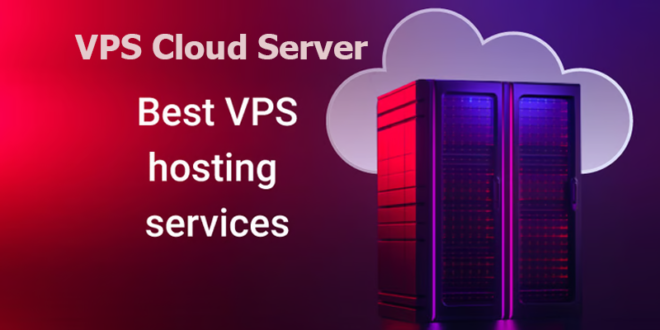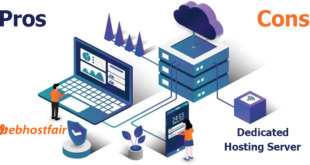In today’s digital age, businesses and individuals alike are increasingly reliant on robust, scalable, and high-performance hosting solutions. Cloud servers have emerged as a popular choice due to their flexibility, reliability, and cost-effectiveness. But with a myriad of options available, how do you choose the best cloud server for your needs? This guide will explore the features, benefits, and top providers of cloud servers to help you make an informed decision.
What is the Best Cloud Server?
A Best cloud server is a virtual server that runs in a cloud computing environment. Unlike traditional physical servers, cloud servers are built, hosted, and delivered via a cloud computing platform over the internet. They offer a range of benefits, including scalability, flexibility, and cost efficiency.
Key Features of the Best Cloud Server
When evaluating cloud servers, several key features distinguish the best from the rest:
1. Scalability
The ability to scale resources up or down based on demand is a hallmark of cloud servers. This flexibility allows businesses to handle varying workloads without investing in additional hardware.
2. Performance
High-performance cloud servers are essential for ensuring fast load times and smooth operation of applications and websites. Features such as SSD storage, high-speed processors, and optimized network infrastructure contribute to better performance.
3. Reliability and Uptime
Reliable cloud servers offer high availability and minimal downtime. Look for providers that guarantee at least 99.9% uptime, backed by redundant infrastructure to ensure continuous service.
4. Security
Security is paramount in any hosting solution. The best cloud server include robust security measures such as encryption, firewalls, regular updates, and comprehensive monitoring to protect against cyber threats.
5. Cost Efficiency
Cloud servers typically operate on a pay-as-you-go model, allowing you to pay for only the resources you use. This cost efficiency can result in significant savings compared to traditional hosting solutions.
6. Ease of Management
A user-friendly control panel and management tools simplify the administration of cloud servers. Features like automated backups, one-click installations, and comprehensive dashboards are essential for efficient management.
7. Customer Support
Responsive and knowledgeable customer support is critical for resolving issues quickly. Top cloud server providers offer 24/7 support through various channels, including live chat, phone, and email.
Benefits of Using Cloud Servers
1. Flexibility and Scalability
Cloud servers offer unparalleled flexibility, allowing businesses to scale resources on demand. This makes it easy to accommodate traffic spikes or growing workloads without the need for significant capital investment.
2. Cost Savings
By adopting a pay-as-you-go pricing model, cloud servers eliminate the need for upfront hardware costs and reduce ongoing maintenance expenses. This model ensures you only pay for what you use.
3. Improved Performance
With optimized infrastructure and high-performance components, cloud servers provide faster load times and better application performance, enhancing user experience.
4. Enhanced Security
Cloud servers offer advanced security features to protect your data and applications. This includes regular updates, real-time monitoring, and robust encryption protocols.
5. High Availability
The redundant nature of cloud infrastructure ensures high availability and reliability. If one server fails, another takes over, minimizing downtime and ensuring continuous operation.
6. Disaster Recovery
Cloud servers often include built-in disaster recovery solutions, ensuring that your data is backed up and can be restored quickly in the event of a failure or data loss.
Top Cloud Server Providers
1. Amazon Web Services (AWS)
AWS is a leading cloud service provider, offering a wide range of cloud server solutions through its EC2 service. Known for its reliability, scalability, and extensive feature set, AWS caters to businesses of all sizes.
Key Features:
- Wide range of instance types
- Auto-scaling and load balancing
- Advanced security features
- Global network of data centers
Pricing:
AWS uses a pay-as-you-go model, with pricing varying based on instance type and usage.
2. Microsoft Azure
Azure provides comprehensive cloud services, including virtual machines that offer high performance and scalability. It is particularly favored by enterprises due to its seamless integration with Microsoft products.
Key Features:
- Wide variety of VM sizes and configurations
- Strong security and compliance features
- Hybrid cloud capabilities
- Extensive global reach
Pricing:
Azure also follows a pay-as-you-go pricing model, with various options to suit different needs.
3. Google Cloud Platform (GCP)
GCP offers powerful cloud server solutions with a focus on performance and innovation. Its robust infrastructure supports high-speed data processing and real-time analytics.
Key Features:
- Custom machine types
- Live migration of virtual machines
- Advanced networking options
- Comprehensive security features
Pricing:
GCP provides competitive pricing with sustained use discounts and a pay-as-you-go model.
4. DigitalOcean
DigitalOcean is known for its simplicity and developer-friendly approach. It offers high-performance cloud servers called Droplets, which are easy to deploy and manage.
Key Features:
- SSD-based storage
- Simple and intuitive control panel
- Automated backups and monitoring
- Global data centers
Pricing:
DigitalOcean offers transparent and affordable pricing, starting at $5 per month.
5. Linode
Linode provides reliable and affordable cloud server solutions with a strong emphasis on performance and customer support. It is a popular choice for developers and small businesses.
Key Features:
- High-performance SSD storage
- Easy scalability
- Comprehensive security features
- Excellent customer support
Pricing:
Linode offers straightforward pricing, starting at $5 per month.
How to Choose the Best Cloud Server
1. Assess Your Needs
Determine your specific requirements in terms of performance, scalability, and security. Consider factors such as expected traffic, data storage needs, and the nature of your applications.
2. Evaluate Features
Compare the features offered by different cloud server providers. Look for key attributes such as high uptime, robust security measures, and ease of management.
3. Consider Performance
Check the performance benchmarks of potential providers. Look for those that offer high-speed processors, SSD storage, and optimized network infrastructure.
4. Review Pricing
Examine the pricing models of different providers. Ensure you understand the cost implications of scaling resources and any additional fees that may apply.
5. Check Customer Support
Evaluate the customer support services offered by each provider. Ensure they provide 24/7 support and have a reputation for responsiveness and expertise.
6. Read Reviews and Testimonials
Look for reviews and testimonials from other users to gauge the reliability and performance of potential cloud server providers.
Choosing the best cloud server requires careful consideration of your specific needs, performance requirements, and budget. By understanding the key features and benefits of cloud servers and comparing top providers like AWS, Azure, GCP, DigitalOcean, and Linode, you can make an informed decision that aligns with your business objectives.
Whether you’re a small business owner, a developer, or an enterprise, the right cloud server can provide the flexibility, performance, and reliability needed to support your growth and success in the digital landscape.
 webhostfair Web hosting news, reviews | Best web hosting service for your business
webhostfair Web hosting news, reviews | Best web hosting service for your business

